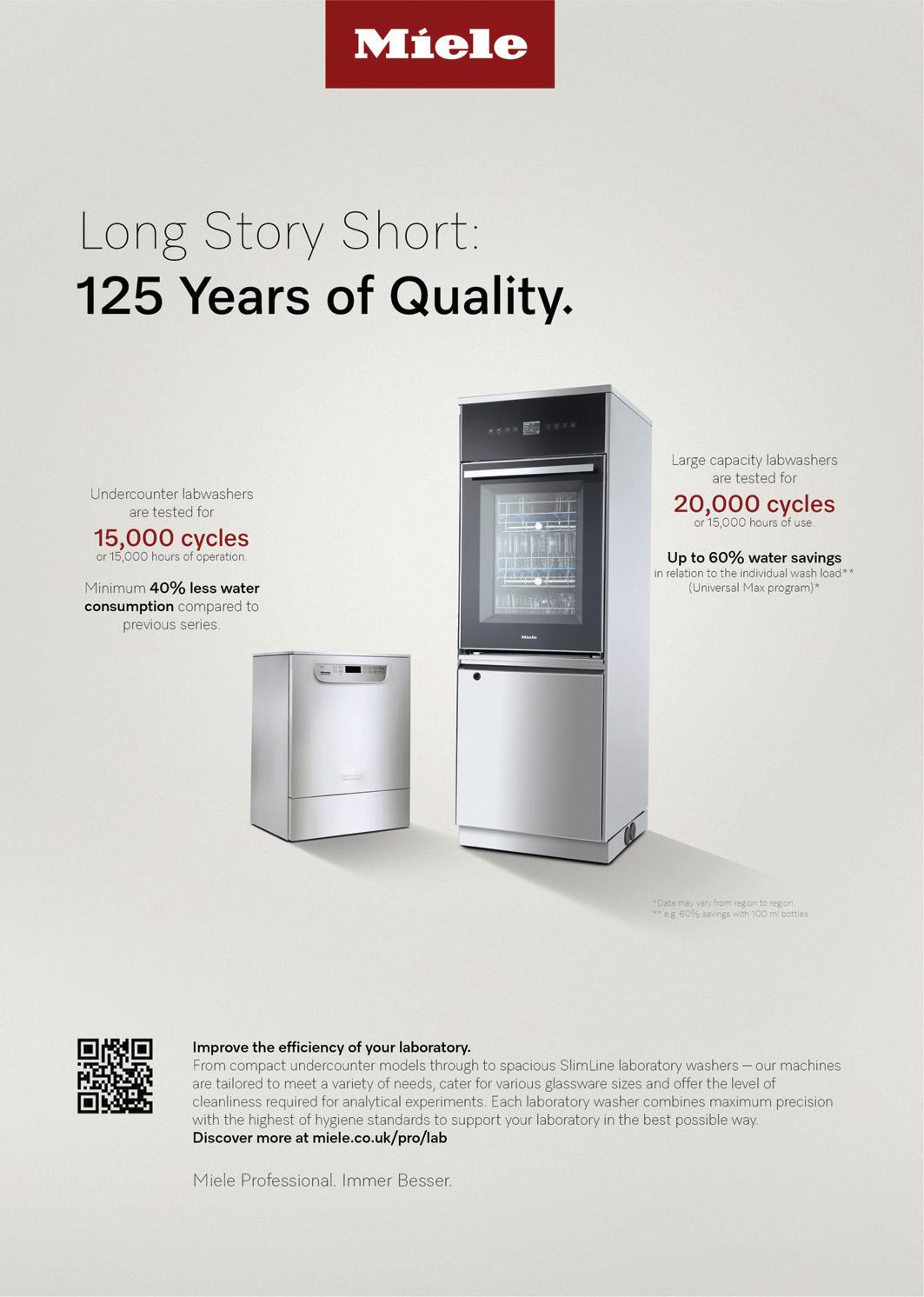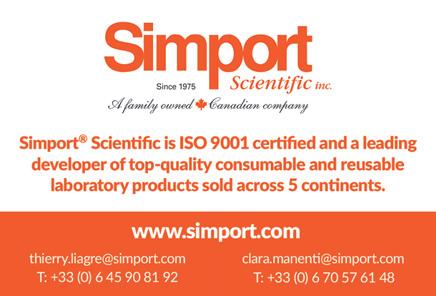





Scientific Laboratory Supplies is the UK’s largest independent supplier of laboratory equipment, chemicals and consumables. With a portfolio of more than half a million products … and counting, it is clear why. During an in-depth interview, Sustainability Manager Lucy Moore divulged the latest company developments and explained how SLS is working to mitigate greenwashing and putting sustainability at the core of its activities. Report by Imogen Ward.
Scientific Laboratory Supplies (SLS) has stormed the market thanks to its unique approach to sourcing and supplying high-quality equipment, chemicals and consumables for the lab environment.
The company operates with an impressive portfolio of more than 600,000 products, which it regularly expands.
“Essentially, we can supply anything that goes into a lab,” explained Sustainability Manager Lucy Moore. “And we are always expanding, adding around two to three new suppliers every quarter.”
Building a brand
Over the years, the company has worked diligently to build a solid reputation within the market. From the creation of its ecommerce website in 2005 to the first Scientific Laboratory Show in 2008, SLS has done everything possible to spread its reach within the market.
Every two years, SLS invites its key suppliers and customers to the show and uses it as a space to showcase products, share best practice, and discuss ideas, new innovations, and hot topics within the market – with a bit of fun thrown in. These shows have been incredibly

successful over the years and have contributed to SLS’ thriving position.
The most recent show, in May of this year, saw over 1,400 people descend on the East Midlands Conference Centre in Nottingham. The dedicated sustainability masterclasses and panels proved to be the most popular talks of the entire event.
This popularity clearly demonstrates that sustainability is at the forefront of SLS’ customers’ minds. This is a cornerstone of the company’s vision to contribute to a healthier, smarter and safer world by supporting science and the people who work within it.



Sustainable product portfolio
SLS recognises that determining the sustainability of products brought into a laboratory is a difficult and often complex process. There are currently many different approaches on how more sustainable products are marketed.
“We wanted to enable customers to make better, more environmentally conscientious decisions,” said Lucy. “And the Sustainability Attributes project paves the way for this.”
This project was developed in collabo ration with SLS’ suppliers to provide customers with enough information and transparency to make more informed product purchases.
“We were determined to cut through the noise of green labels and greenwashing by providing customers with the facts,” added Lucy. “All the primary data is collected straight from our suppliers and relates to raw materials, manufacturing, packaging distribution, use and end of life.
“It could be anything from resource efficiency principles being embedded into the design of the product to use less plastic, to the manufacture being in a facility that runs on renewable energy or within a country that has a good Environmental Performance Index.”
The project launched at the beginning of 2024, following two years of development, and is expected to continue indefinitely – with new information and products added on a regular basis.
“We would love the project to get to a stage where more quantitative
metrics are involved,” said Lucy. “And whilst we might be a few years off that, we are being proactive in helping our suppliers to be able to provide this level of information in the future.”
Green initiatives
SLS has also implemented a zero-wasteto-landfill ethos, both in its operations but also in its responsibility as a distributor. In line with this, the company has come up with a solution to help customers prevent unnecessary lab plastic waste going to landfill or incineration.
SLS’s Plastic to Purpose programme was developed to provide a robust yet simple way to repurpose clean lab plastics. Also free for SLS customers, this programme gives plastics a new life.
“We have collaborated with our partners to make this programme as sustainable as possible,” said Lucy. “Our partners integrate each participating facility into

their delivery routes to mitigate unnecessary travel. The waste is then taken to a regional recycling facility, where it is segregated, processed and repurposed.
“Our customers’ waste has been transformed into new products such as retail baskets, street furniture, building materials and even roadside kerbs.”
Sustainable growth
More recently, the company transitioned to a newer, bigger, purpose-built distribution centre after reaching full capacity at its old facility in Wilford.
“We definitely outgrew our previous distribution facility,” said Lucy. “The new site in Fairham has been built to our exact requirements, with a keen focus on sustainability, even down to draft sensors on radiators.”
SLS’ new distribution centre runs on 100% electricity and has solar panels on its roof, which are expected to generate







SCIENTIFIC LABORATORY SUPPLIES I PROFILE

300MW/h of renewable energy each year. From the migration to this new site, the subsequent move away from gas, and much of its reliance on externally provided energy, SLS will be successful in reducing its operational emissions by 20%. This, however, is just the beginning of its journey to improved sustainability.
“We expect to halve our emissions by 2030 and reach net zero by 2045 across all scopes. To achieve this, we will continue making internal changes such as transitioning our fleet and working closely with our suppliers to improve our supply chain emissions.
The company has set a very progressive target of maintaining its resource usage at 2020 consumption levels, something with which the new facility will no doubt support. It has also worked hard to improve efficiency within its warehouse.
A team effort
These initiatives would not have been possible without the hard work and dedication of employees and support of SLS’ partners, customers and suppliers. The company has fostered these relationships over the years and continues to do so going forward.
“We want to nurture our supply chain and work more closely with all our partners,” explained Lucy. “It is through mutual trust and collaboration that we can share a vision of what we want to achieve, set expectations with suppliers and partners, then succeed in achieving those goals together.”
“We want to ensure our customers have access to a one-stop-shop for scientific laboratories. But in doing so, we also want to be as sustainable as we can be, and proactively help our customers achieve goals of their own.”
Embedding sustainability into working practices at SLS has been helped by what the company proudly calls its ‘SLS-ness’ – the team working together to achieve a common goal and everybody that works there buying into that goal.
As it focuses firmly on the future, SLS is determined to continue growing in a way that strives to be as sustainable as possible.
“Every day at SLS is one focused on improvements; we have the ability to do better than yesterday, and that is a great feeling,” said Lucy, in conclusion. “Being sustainable can be difficult in our industry , but SLS is determined to rise to the challenge and provide its customers with the best foundation for a more sustainable future.”
For more information on SLS’s continued work around sustainability, visit their dedicated sustainability subsite. n




